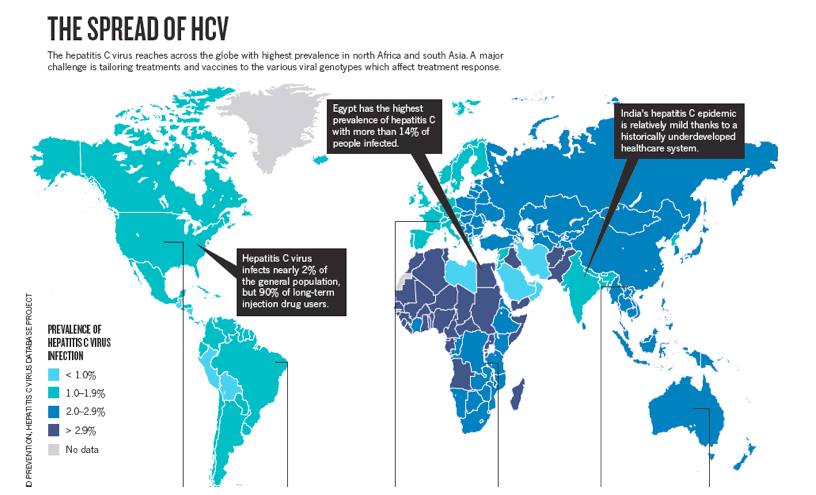In the developed world, the newly discovered treatment is already taking effect and the number of Hepatitis C patients finally started to decrease. However, the most problematic countries that produce more and more Hepatitis C patients without a systematic healthcare system eliminating the HCV, are third world countries. Today we will look at the example of just such a country - Pakistan.
Pakistan is the country where the number of Hepatitis C patients is increasing at an alarming rate. These five practices speak all about it.
1. Injecting a silent killer
Administering interferon through intra-vascular injection is still a common mode of treatment in Pakistan. It is embedded deep down in medical culture and practices. In rural areas, the predominant symbol of doctor is the person holding a mighty injection. In many ways, this image of a doctor is interesting and opposite to the universal image of doctor wearing a white coat and holding a stethoscope around her neck.In injection practice, alarming thing is not the injection itself but unhygienic reuse of syringes. There are cases where doctors have had limited supply of syringes for a whole week. This unhygienic practice let the infected person transfer the hepatitis virus silently to the other person.
Doctor-to-patient transmission is something the developed world is not immune to as well. A few weeks ago we wrote a story about a UK based NHS doctor who potentially infected more than 8,000 patients with HCV.
Spread of Hepatitis C all over the world

2. Quakes are part of problem not part of solution
Quakes are a sort of physicians in Pakistan. They do not study medicine or surgery but they do practice both. They are mostly working or retired paramedics but they act like real doctors and start their own clinics. Quakes are least concerned about preventive measures and hygienic standards.They administer infected syringes, use non-scientific methods and prescribe sub-standard medicines. In many ways, quakes create an environment where infected person transfer the virus to other healthy person. These self-styled doctors do not recommend their patients basic tests and administer injection at their own whims. Many patients with chronic hepatitis C have had a history of quake treatment at an early stage.
3. Blood transfusion is a serious thing!
In Pakistan, the practice of blood transfusion is not controlled as in the developed world. With the exception of few hospitals in big cities, most of the hospitals in the country lack facilities to storage donor blood.Central blood bank is not effective enough to cater the demands of the whole country. When patients is a critical situation, the relatives have to procure blood on their own. This critical situation puts the question of hepatitis C free blood aside and results in unchecked transfusion of infected blood to the patient- leading to more cases of hepatitis C.
4. Desi Dawai (herbal treatment) does not work for every disease
There is a general misconception in hepatitis C treatment. People take interferon treatment as an unwelcome approach for two reasons.First, it is a complicated and prolonged.
Second, it is costly and patients have to go for many costly tests during the treatment. Patient prefers to go for herbal medicines, as herbal treatment is less costly and patient-friendly. This method of treatment brings temporary relief in some cases but destroys the liver completely leading to complete liver failure.
